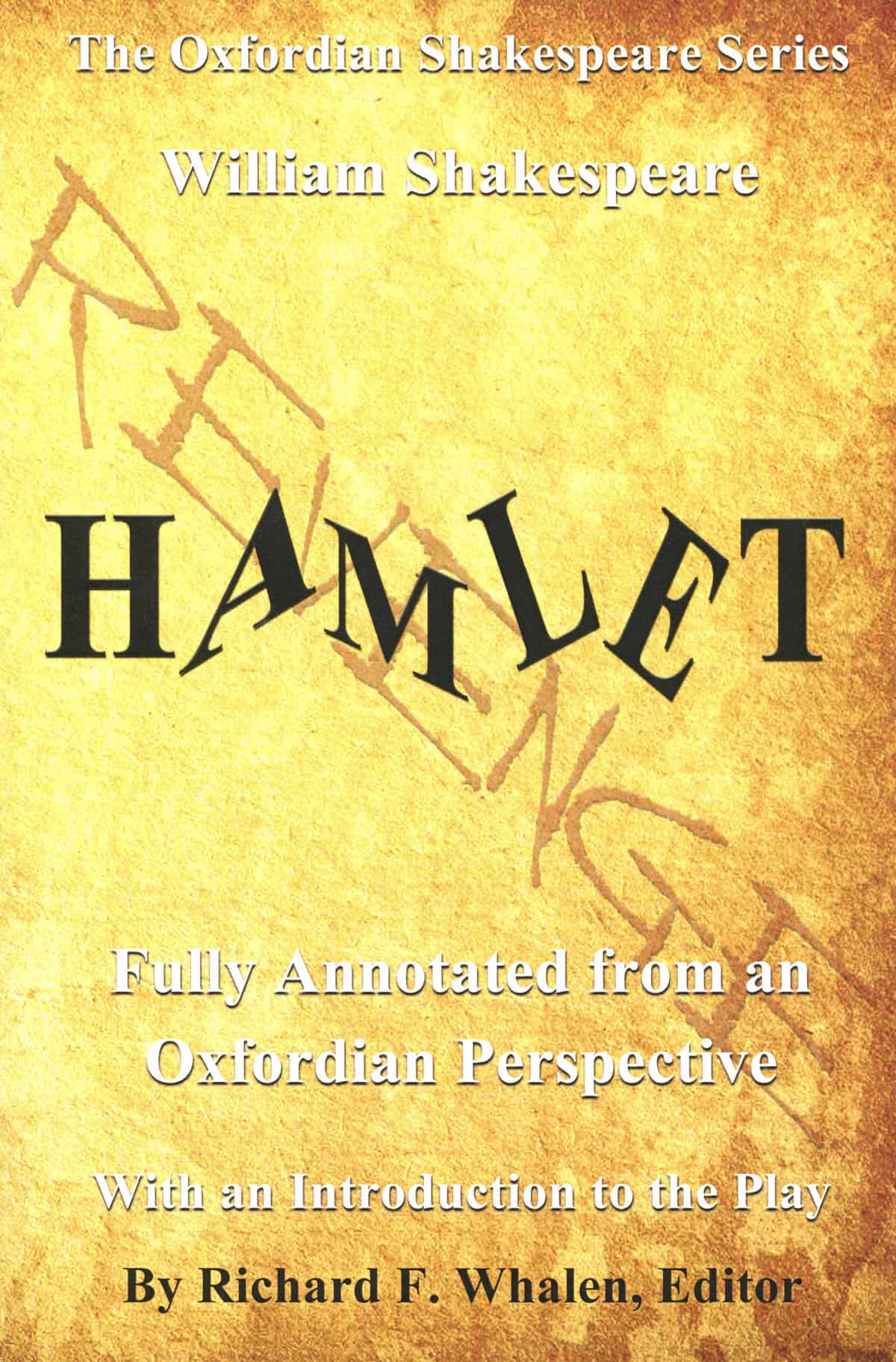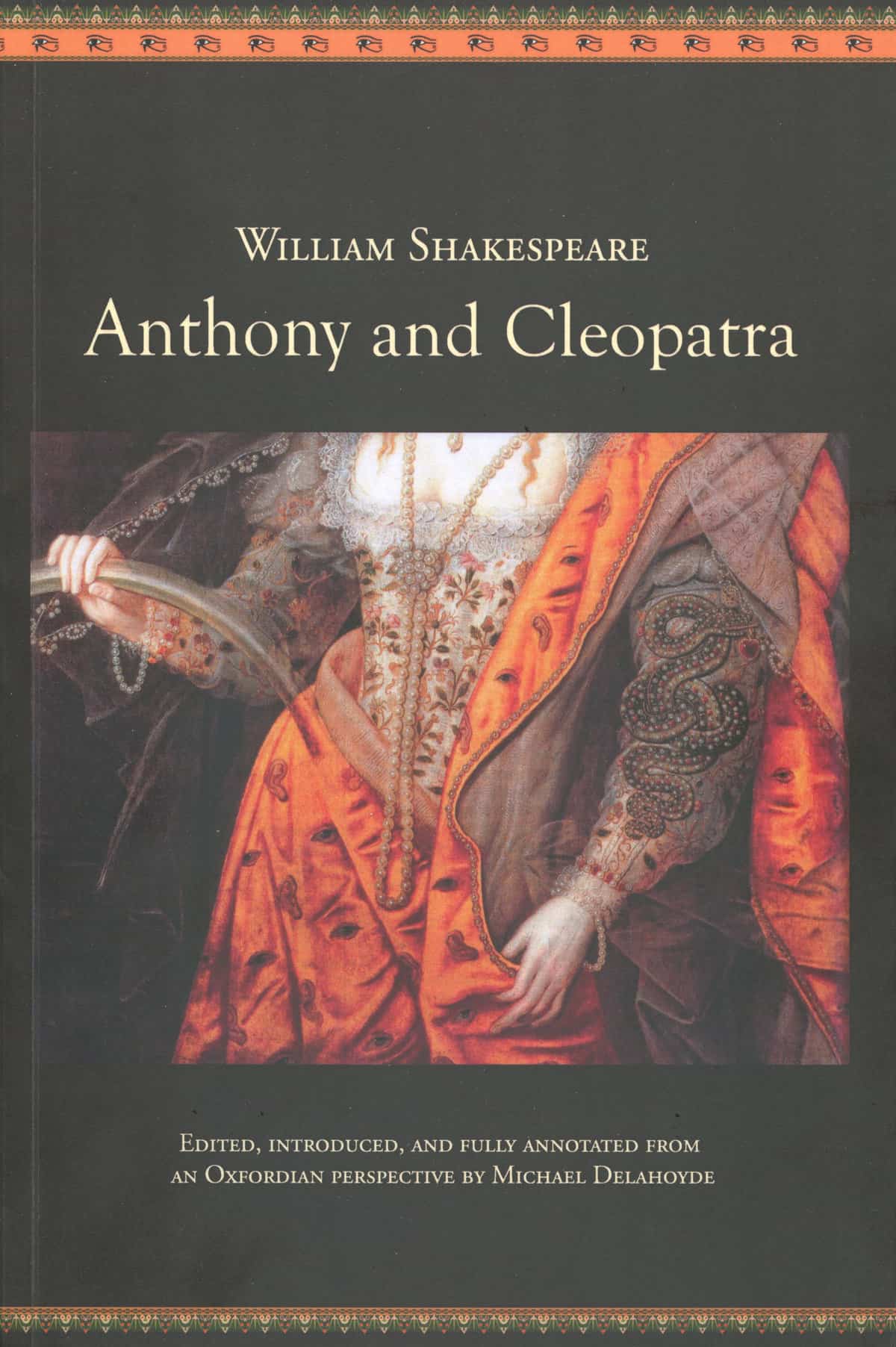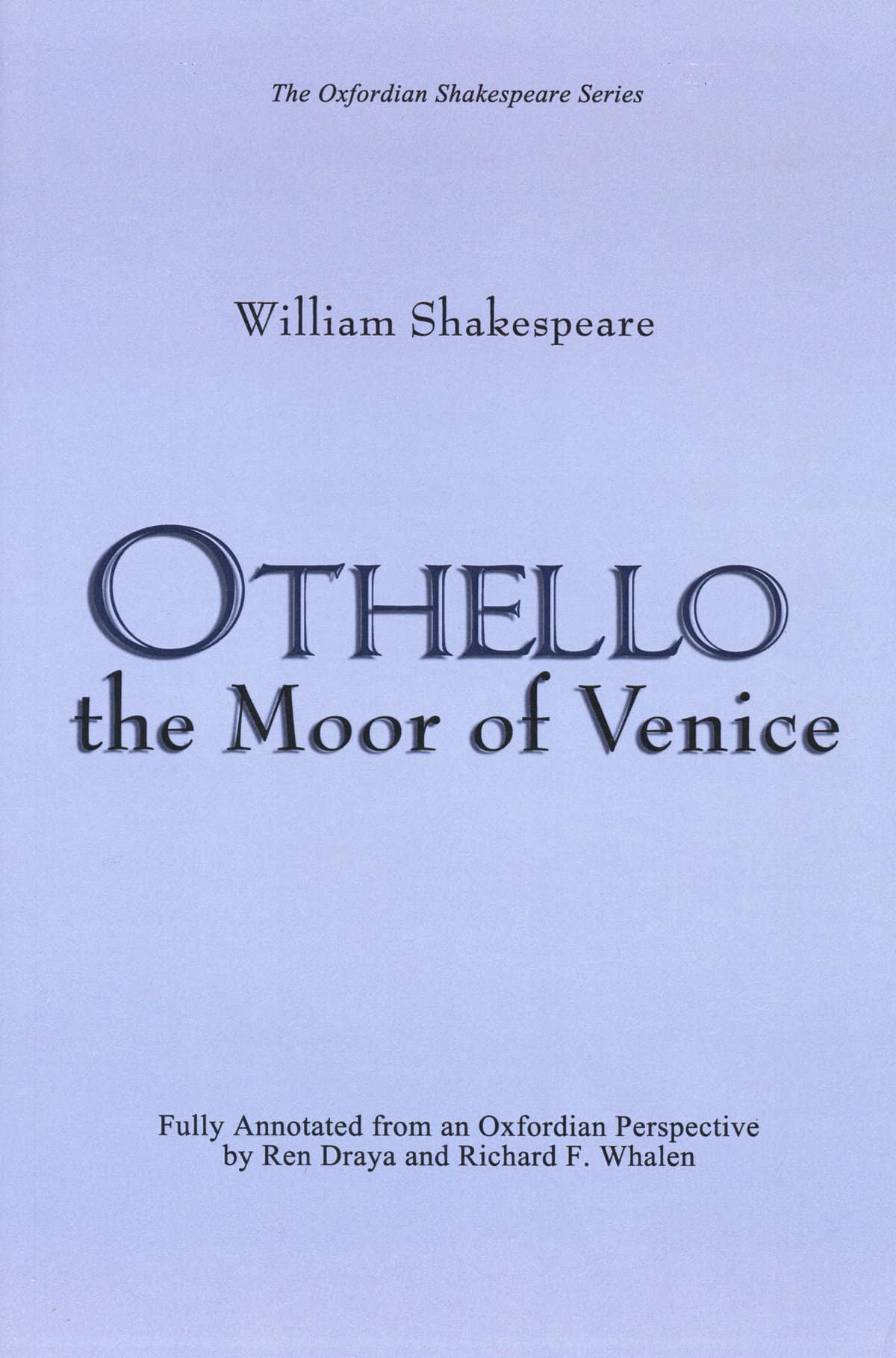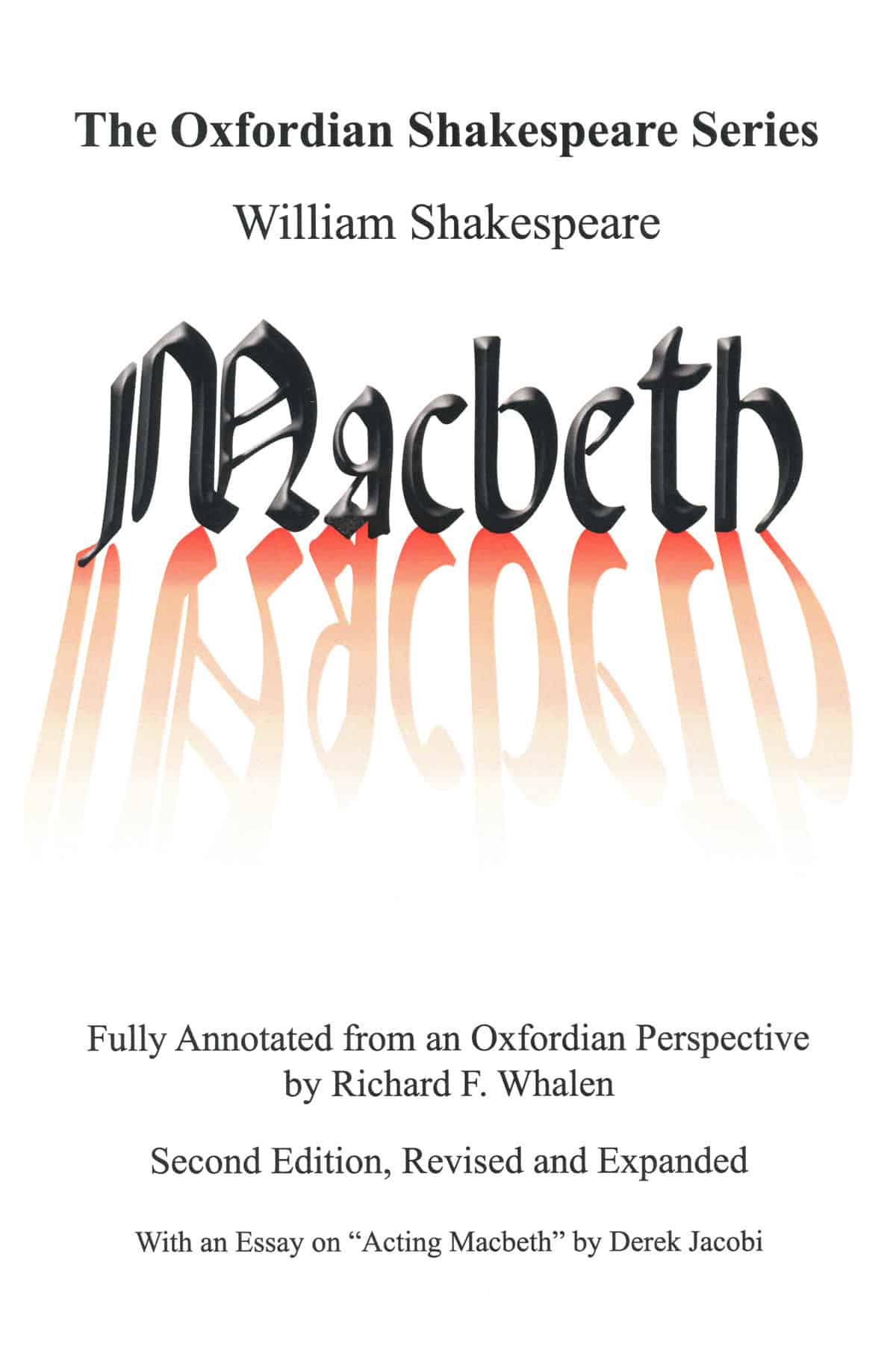Oxfordian Scholarly Editions of “Shakespeare” Plays
by Bryan H. Wildenthal
 With the holiday gift season underway, which book might be the perfect present to get that unsuspecting friend or relative hooked on the Shakespeare authorship question? At any time of year, it’s worth recalling the extraordinary work scholars have done — and continue to do — to explore specific Shakespearean plays from the Oxfordian perspective, which credits the true authorship to Edward de Vere, 17th Earl of Oxford.
With the holiday gift season underway, which book might be the perfect present to get that unsuspecting friend or relative hooked on the Shakespeare authorship question? At any time of year, it’s worth recalling the extraordinary work scholars have done — and continue to do — to explore specific Shakespearean plays from the Oxfordian perspective, which credits the true authorship to Edward de Vere, 17th Earl of Oxford.
Richard F. Whalen, Professor Emeritus Ren Draya, and Professor Michael Delahoyde have published a total of four Oxfordian critical editions so far: Macbeth (Whalen ed. 2007; 2d ed. 2013), Othello (Draya & Whalen eds. 2010), Anthony and Cleopatra (Delahoyde ed. 2015) (yes, the playwright’s authentic original spelling is “Anthony,” not “Antony”), and Hamlet (Whalen ed. 2018). Delahoyde is in the final stages of editing the fifth scholarly Oxfordian edition, of Twelfth Night, to be published in 2021.
Also worth keeping in mind are the handsome reader’s editions of plays and poems “by Edward de Vere,” recently issued by Verus Publishing. The Verus books have a nature and goal different from the Oxfordian scholarly series, as explained in this companion article on the SOF website. They do not provide explanatory footnotes or annotations. Thus, readers of the Verus books may wish to have a scholarly edition handy to clarify archaic words and obscure references.
 The Oxfordian scholarly series has earned high praise. Jacob Hughes declares that the “erudite yet witty” edition of Anthony and Cleopatra “illuminates this play as no one has before. As a purveyor of joyful scholarship, Dr. Delahoyde is peerless.”
The Oxfordian scholarly series has earned high praise. Jacob Hughes declares that the “erudite yet witty” edition of Anthony and Cleopatra “illuminates this play as no one has before. As a purveyor of joyful scholarship, Dr. Delahoyde is peerless.”
Bonner Miller Cutting notes that while Shakespearean works are too often studied “in an historical vacuum, disconnected from the time of their creation as well as the factual biography of the author,” this series “puts the works in the context of the Elizabethan era, taking historical, literary, and sociological information into account.”
The Oxfordian edition of Macbeth includes an essay on acting the play by SOF Honorary Trustee Sir Derek Jacobi. In the Hamlet edition, Whalen thanks Gen. Jack M. Shuttleworth, retired Air Force Academy Professor, Head of the English Department, and Chair of the Humanities Division, both for preparing that play’s text and for inspiring the entire series with his essay, “Prolegomena for the Oxfordian Shakespeare.” For the first two volumes (Macbeth and Othello), the late Professor Daniel L. Wright served with Whalen as general co-editor.
 Draya and Delahoyde are distinguished academics who have published and lectured frequently on Shakespearean topics. Both were honored with the Vero Nihil Verius Award for Scholarly Excellence of the former Shakespeare Authorship Resource Center at the former Concordia University branch in Portland, Oregon.
Draya and Delahoyde are distinguished academics who have published and lectured frequently on Shakespearean topics. Both were honored with the Vero Nihil Verius Award for Scholarly Excellence of the former Shakespeare Authorship Resource Center at the former Concordia University branch in Portland, Oregon.
Draya is Professor Emeritus of English at Blackburn College (Carlinville, Illinois) and co-editor of a leading anthology, Types of Drama: Plays and Contexts (7th ed. 1997). In a 2009 essay, she described the challenges of editing Othello.
Delahoyde is Professor of English and Humanities at Washington State University (Pullman). One of his most important articles, on “De Vere’s Lucrece and Romano’s Sala di Troia,” was published in 2006.
Whalen is one of the most respected and prolific scholars in the history of the Oxfordian movement, honored in 2007 as Oxfordian of the Year. He earned degrees from Fordham, the Sorbonne, and Yale Graduate School and worked professionally as a reporter and editor for the Associated Press and as a communications executive for IBM.
 Whalen’s classic book, Shakespeare: Who Was He? (1994), remains perhaps the most powerful concise summary of the evidence against the Stratfordian theory and in favor of the Oxfordian theory. Two of his articles, on the First Folio and the Stratford Monument, appear as chapters in Shakespeare Beyond Doubt? (Shahan & Waugh eds. 2013). The Folio article is also available here, and the Monument article here.
Whalen’s classic book, Shakespeare: Who Was He? (1994), remains perhaps the most powerful concise summary of the evidence against the Stratfordian theory and in favor of the Oxfordian theory. Two of his articles, on the First Folio and the Stratford Monument, appear as chapters in Shakespeare Beyond Doubt? (Shahan & Waugh eds. 2013). The Folio article is also available here, and the Monument article here.
Whalen is also the author or co-author of important studies debunking two key canards used to attack the Oxfordian theory: an article on the dating of Shakespearean works in relation to Oxford’s 1604 death, and a series of articles with John M. Shahan on “stylometric” analysis.
Membership dues cover only a fraction of our budget, including all our research, preservation and programming. Please support the SOF by making a gift today!
Blue Boar Tavern: Wassail Q&A
Tuesday Dec. 17, 8pm E / 5pm P
Sign up below for event invites!
